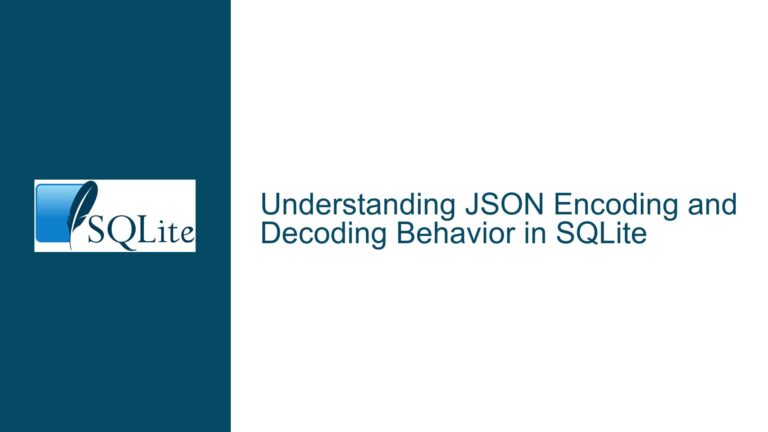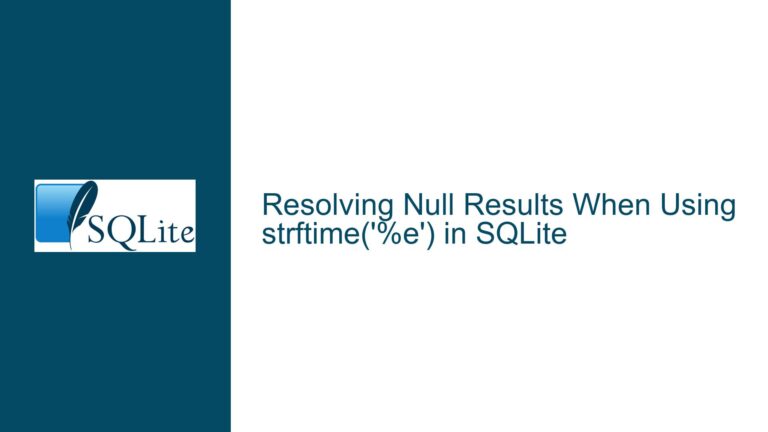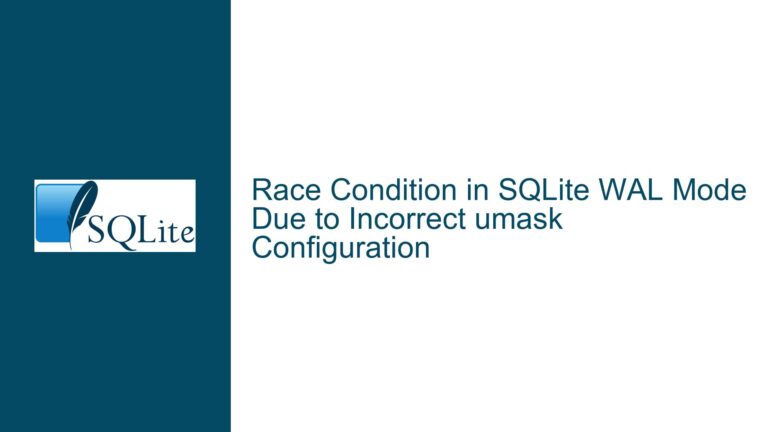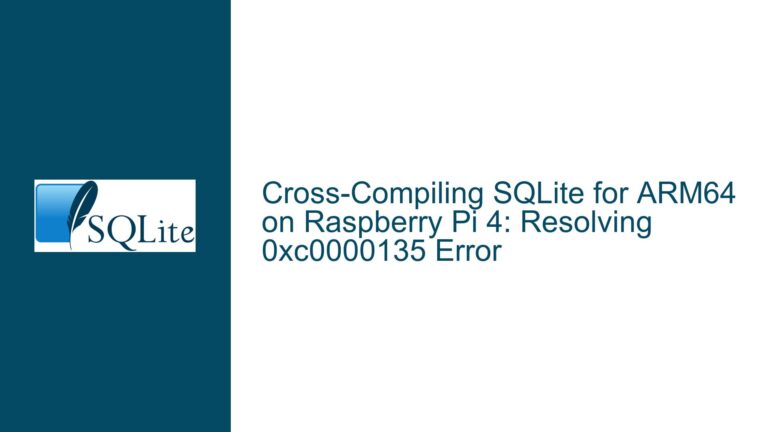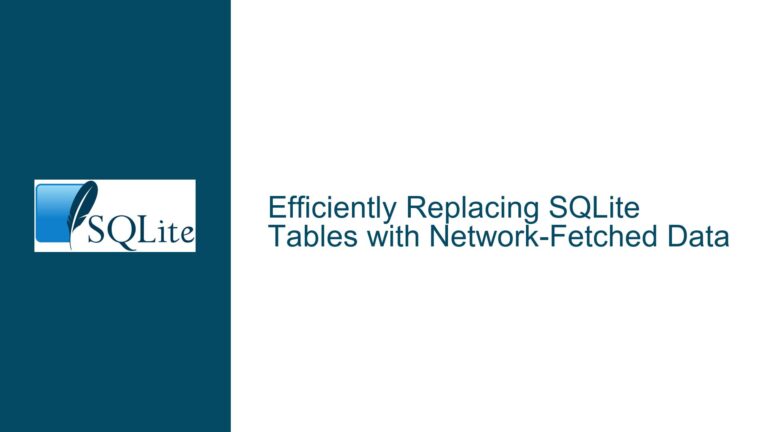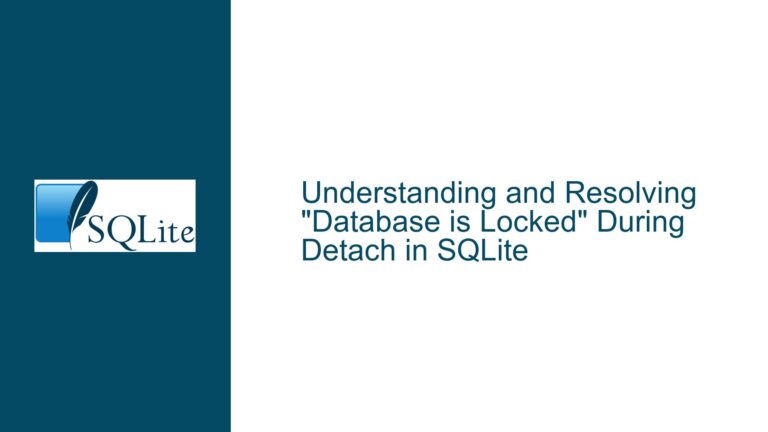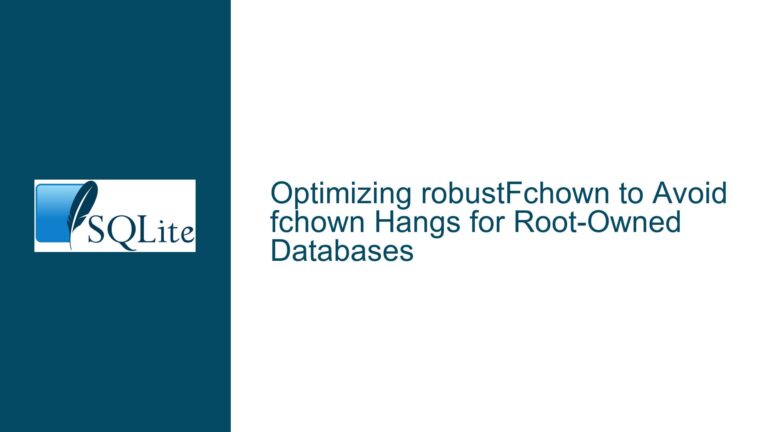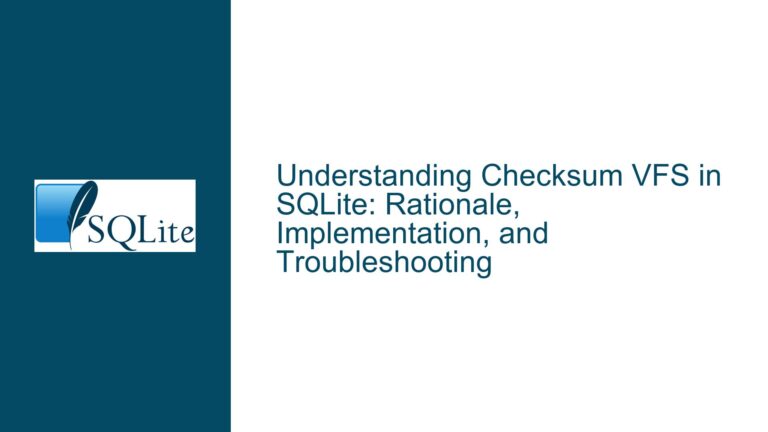JSON Encoding and Decoding Behavior in SQLite
JSON Encoding and Decoding Behavior in SQLite Issue Overview The core issue revolves around the behavior of SQLite’s JSON functions, specifically json_extract(), when handling JSON strings that contain special characters represented in different formats. The primary observation is that SQLite treats two seemingly different JSON strings as identical when extracting and comparing their values, despite…
